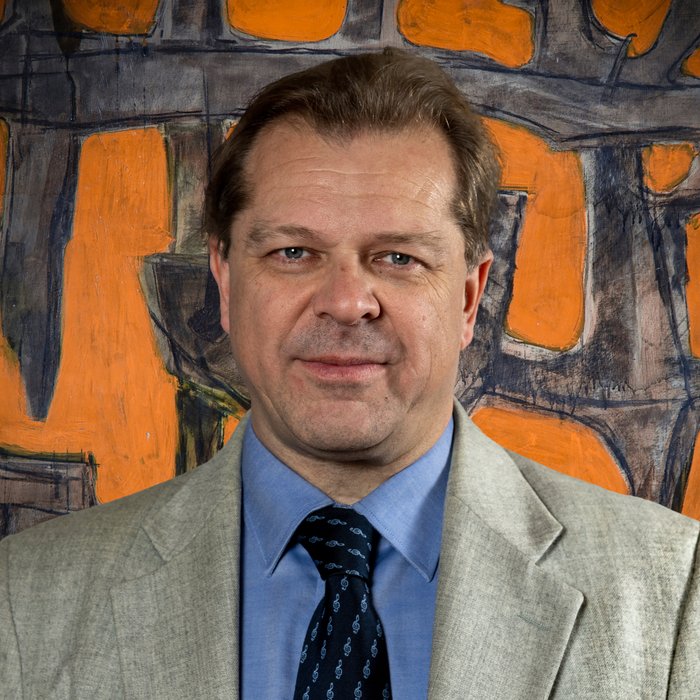Paolo Driussi
DIUM

Paolo Driussi
Filologia ugro-finnica (GLOT-01/D)
- Ricercatore
- Tel: 0432 556511
- Email: paolo.driussi@uniud.it
- Studio: Palazzo Falconieri, ground floor, room LT-005
- Insegnamenti: Hungarian Language 1, 2, 3; Hungarian Language and Translation 1, 2, 3; Text Analysis
Paolo Driussi
Filologia ugro-finnica (GLOT-01/D)
- Ricercatore
- Tel: 0432 556511
- Email: paolo.driussi@uniud.it
- Studio: Palazzo Falconieri, ground floor, room LT-005
- Insegnamenti: Hungarian Language 1, 2, 3; Hungarian Language and Translation 1, 2, 3; Text Analysis

In 1991 I graduated in Foreign Languages and Literatures in the Hungarian and English languages with a thesis on Ugric linguistics (Adverbs in the Ugric languages). For a while I dedicated myself to deepening this subject in my research, even though I have been doing works outside the academy, dealing mainly with synchronic aspects and beginning to deepen the functionalist linguistic theory of Simon Dik.
In November 2002 I became a researcher at the University of Udine, a position I still hold, and was asked to collaborate in teaching Hungarian. From that moment I contributed to the continuity of the teaching of this subject and I dedicated myself to the study of aspects of teaching Hungarian and L2 to adults. Moreover, I have deepened the application of theories of translation both for practical and didactic aspects.
Within the language studies I immediately began to deal with syntactical questions, always doing research on the ugrofinic and more specific languages for the Hungarian language. With the publication of the Functional Discourse Grammar manual, that is the textual deepening of Simon Dik's grammar, in 2008 I began to develop text linguistics research with a rigorous functionalist approach. This theory is the basis of all my current research and the constant reference in my work. Between 2010 and 2012 I further elaborated these studies with the participation in the PRIN entitled Didactics of languages and formal linguistics: perspectives and applications of comparative grammar.
The lines of application of the theory are above all linked to questions of syntactic realizations, both from a theoretical and a didactic point of view. In 2017 I started research that applied functionalist theory to the Italian language.
Due to the characteristics linked to the disciplinary sector and the university linguistic teaching commitment, I deal sporadically with cultural and literary themes linked to the culture in Hungarian.
The development of skills in linguistics of the text has led me to more specific research in this field, allowing me to teach Text Analysis according to a functionalist linguistic method. In this context I mainly deal with the reasons behind the linguistic forms.
In addition to the text analysis course I have taught since 2017/2018 I continue to teach Hungarian Language and in 2017/2018 I also started to teach Hungarian literature courses.
Main research fields: Functional Discourse Grammar; definiteness; speech order parts; pragmatic; stylistic; Hungarian language; Italian language.
Pubblicazioni
Paired verbs – serial verbs in Cheremis
FUM 16/17, 1994, 59–105
Osservazioni sull’ordine delle parole in ceremisso. Spigolature tra lingue uraliche, ceremisso e teoria della sintassi
Studi Finno-Ugrici 4 (2002–2005) 35–71
New paradigms in teaching languages to adults, focusing on Hungarian
BBH 17 (2012) 308–320
Epica e antiepica ungherese: Gemelli eterozigoti in buona salute
Centopagine 5 (2011) 104–112
Riflessioni sulle corrispondenze dell'uso di forme passive in una lingua che non le conosce
SILTA 47 (2018/3) 501–520
Guida alla lingua ungherese
Milano 2012
Folyamatban levő grammatikalizálódás a cseremisz nyelvben [Un fenomeno di grammaticalizzazione in corso nella lingua ceremissa]
in: B. Oszkó, M. Sipos (curr.), Budapest Uráli Műhely/Budapest Uralic Workshop IV: Uráli grammatizáló, Budapest 2005, 43–54
Di una struttura verbale nelle lingue uraliche
in: R. Bombi et all. (curr.), Studi linguistici in onore di Roberto Gusmani, Alessandria 2006, 643–664 (con L. Honti)
Dialettologia ungherese e dialetti ungheresi in Romania: lo stato di una difficile arte
in: G. Borghello (cur.), Per Teresa. Dentro e oltre i confini. Studi e ricerche in ricordo di Teresa Ferro, Udine 2009, 625–638
Poesie fuori dai confini
in: C. Lupu, A. Ciolan, A. Zuliani (curr.), Studii romanice: Omagiu profesorilor Florica Dimitrescu şi Alexandru Niculescu la 90 de ani, Bucureşti 2018, 1023–1033.
Sociolinguistica oggi in Ungheria
in: R. Bombi e F. Fusco (curr.), ... Sand carried by a stream... Scritti in onore di Vincenzo Orioles, Udine 2009, 73–78
A magyar és az olasz nyelvjárástan útjai és további fejlődési lehetőségei [Le strade della dialettologia italiana ed ungherese e le loro possibili prosecuzioni]
in: M. J. Bárth e F. S. Vargha (curr.), Hangok –helyek. Tanulmányok dialektológiai adattárak és helynévtárak számítógépes feldolgozásáról, Budapest 2011, 75–85
Insegnare con l'esempio. Analisi di un testo ungherese antico
in: G. Borghello (cur.), Per Roberto Gusmani. Linguaggi, culture, letterature. Studi in ricordo, 1/, Udine 2012, 217–239
Functionalist and cognitive approaches in teaching and describing languages: advantages for less spoken languages
in: R. Hegedűs e T. Görbe (curr.), Small language, what now. The theory and practice of Functional Linguistics in Teaching ”Minor” Languages, Leipzig 2016, 27–42
La traduzione, la linguistica e, soprattutto, la grammatica. Quanti modi abbiamo per leggere?
in: C. Franchi (cur.), Editoria e traduzione: focus sulle lingue di minore diffusione, Roma 2016, 55–67





